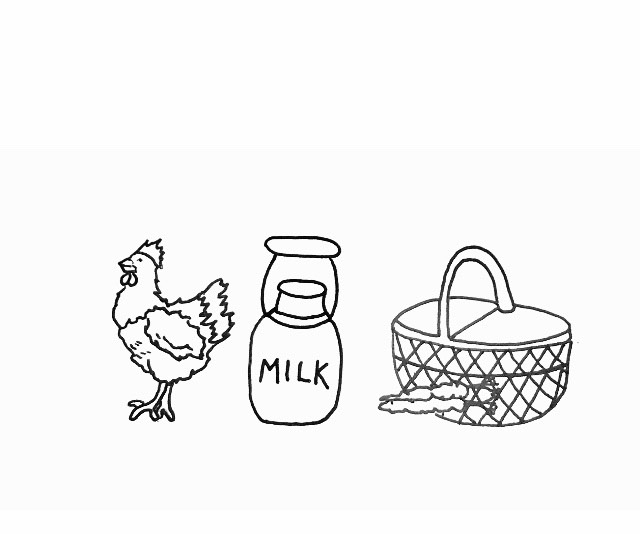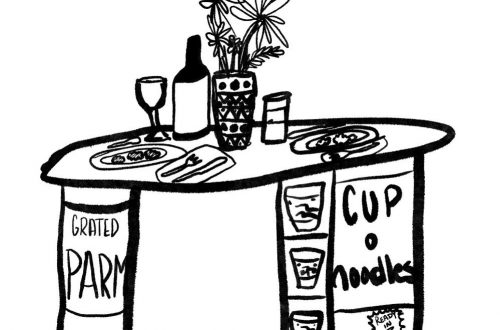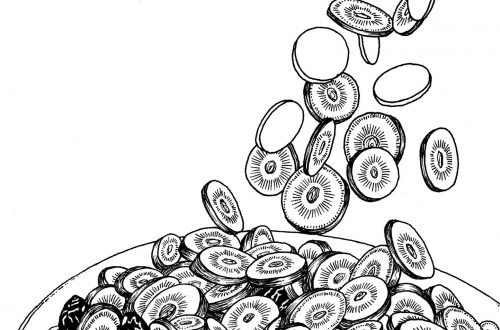by Becky Garrison
Becky’s article appears in episode 22 of The Dirty Spoon Radio Hour.
The Pacific Northwest restaurant scene gained a well-earned international reputation for their locally sourced sustainable food and beverages. However, starting in mid-March, restaurants laid off staff and either shuttered or shifted to take-out service, and restaurant sales all but vanished for local farmers. Those farms that could adapt cut back on their planting and explored offering CSA boxes and farm pickups to get their products to consumers. As demonstrated by three Pacific Northwest establishments, maintaining this regional farm to table connection between farmer and chef has proven to be a challenge during this global pandemic
Higgins Restaurant, Portland, Oregon
Since Higgins Restaurant’s inception in 1994, chef and co-owner Greg Higgins focused on direct sourcing from local farmers whenever possible. “As an organic gardener, this is all part of my existence. It’s not just my job or career,” he says. His menus showcase his approach to food, which he shares with those customers who express an interest in understanding where their food is sourced.
Portland’s fairly rigid urban growth boundaries adopted in the mid-seventies led to this city being situated in close proximity to small farms. In the 1980s, Higgins met growers at the few local farmer’s markets in existence. Over time, he developed a network of farmers whose gardening practices were in line with his philosophy. He finds many of his regular clientele are drawn to this ethos with many of them subscribing to a CSA from one of the farms that supply his restaurant.
In prior seasons, Higgins spent approximately a million dollars a year in purchases from local farms. Since March 2020, this number dropped significantly once they switched to takeout. Once they resume dining service, they will only be at fifty percent capacity even though they can offer seating in their parking lot. Hence, Higgins adjusted his purchases from his farmers accordingly. “Instead of getting up to three days of delivery a week from somebody, we may only get one delivery,” he says. Also, they may not be able to use certain vendors until they can grow their revenue to the point where it makes fiscal sense for that particular vendor to drive into town with their wares.
Higgins’ decision to keep his rotating menu small and compact in order to offer the freshest seasonal food enabled him to readjust to this new reality. Currently, they feature one daily special in lieu of their usual four or five daily specials. Higgins notes, “There’s just not enough volume of business to justify a full menu. But there’s still the emphasis on a strong menu that’s representative of the seasonal products available in the Pacific Northwest.”
“There’s just not enough volume of business to justify a full menu. But there’s still the emphasis on a strong menu that’s representative of the seasonal products available in the Pacific Northwest.”
Quaintrelle, Portland, OR
When Chef Ryley Eckersley came to Quaintrelle in 2018, he brought with him his French background influenced by Mediterranean and Asian cuisine to craft playful food using Pacific Northwest ingredients. In addition to his connections with local farms, he gets produce from their sister property Abbey Road Farm in Carlton, Oregon. They have been working on farming a portion of this land to generate produce specifically for Quaintrelle.
His menus change with each seating, a practice that enables him to prepare dishes using the freshest products on the market. “If you are truly farm to table, things change all the time,” he says. “You get to a farmers market one week and they have all these lovely things. And then you go to the next week, and they don’t have any of those things that they had last week, but they have a bunch of new lovely things.”
In selecting products for his dishes, Eckersley focuses on sourcing as responsibly as he possibly can. For example, he knows the name and fishing practices of the fishing boat where he sources his fish. He is on similar intimate terms with the chickens and cows that provide the restaurant with eggs, milk, and meat. Since his suppliers can get to the restaurant in about twenty minutes, he can request produce to order. “When I order say, ten pounds of shelling peas, I get those peas picked that morning and get it the next day.”
During Covid-19, Quaintrelle switched to a takeout model.Their menu offered more nostalgia-driven comfort fare such as fried chicken that proved to be popular with their customers. Now they are open with seating on their patio andthey have returned to their prior fine dining, fish-centric menu. Some farmers are not supplying restaurants at the moment because they sold all of this year’s harvest through CSA boxes. But as Eckersley does not rely on a set menu, he can adjust his dishes to take full advantage of the everchanging array of products available at the local farmers markets.
“When I order say, ten pounds of shelling peas, I get those peas picked that morning and get it the next day.”
Orchard Kitchen, Langley, WA
Since Orchard Kitchen opened in 2015, Chef & Owner Vincent Nattress focused on a very farm-centered menu, with one multi-course menu changing each week. “The idea was to be more like a dinner party than a restaurant, with a large, communal table and courses served family style,” he says. Prior to Covid-19, they had grown into a business that offered service 4 days a week in the summer time with their guest check averaging about $140 a person (20% service charge included so they can pay their staff well).
For Nattress, farm to table means they live and work on a 5-acre piece of land, on an island in the Salish Sea. The seasons order their lives, which means they pay attention to the weather and the soil, taking care to harvest their produce at peak ripeness. They pickle, dry, and cure those items needed in December through March. “I love this system because it is always forcing me to come up with something new based on what is fresh and perfect at that specific moment, right here on Whidbey.”
When they first became aware of Covid-19 in February, they changed their communal seating to give people more space so they felt more comfortable. When the Governor shut down all Washington restaurants in the middle of March, they opened their Farm Stand where they sold their limited amount of March fresh produce. Then they added cheese and charcuterie from the walk-in: cheese, eggs from their chickens, and wine from their restaurant cellar. This “Larder” concept grew to include items such as egg salad, soup, dressings, Caesar salad “kits,” and sourdough bread. Next, they offered curbside pick-up dinners 3 days a week that sold out most nights.
Now that restaurants are allowed to reopen, they are exploring the possibility of doing “In the Field” meals one or two days a week, beginning with a farm tour, and consisting of a more precious menu that more closely approaches the multi-course concept they would normally create, but at a highly refined level.
“I love this system because it is always forcing me to come up with something new based on what is fresh and perfect at that specific moment, right here on Whidbey.”
As these three establishments indicate, Pacific Northwest chefs can continue to craft menus that highlight the bounty of this region. Furthermore, consumers appear to have an increased interest in products that are locally sourced and produced using sustainable and organic farming practices. In Nattress’ estimation, an unexpected net positive from this crisis is that small farms have benefited from people’s desire to avoid the supermarket and reconnect to local food sources. People are more interested than ever in knowing where their food comes from. “Our clients are so grateful to have a place to buy local food they can trust.”
Custom artwork by Corinne Pease.

About Becky Garrison
Becky Garrison is a freelance writer currently based in Portland, Oregon. Follow her explorations of the Pacific Northwest craft culture on Instagram and Twitter @Becky_Garrison.






